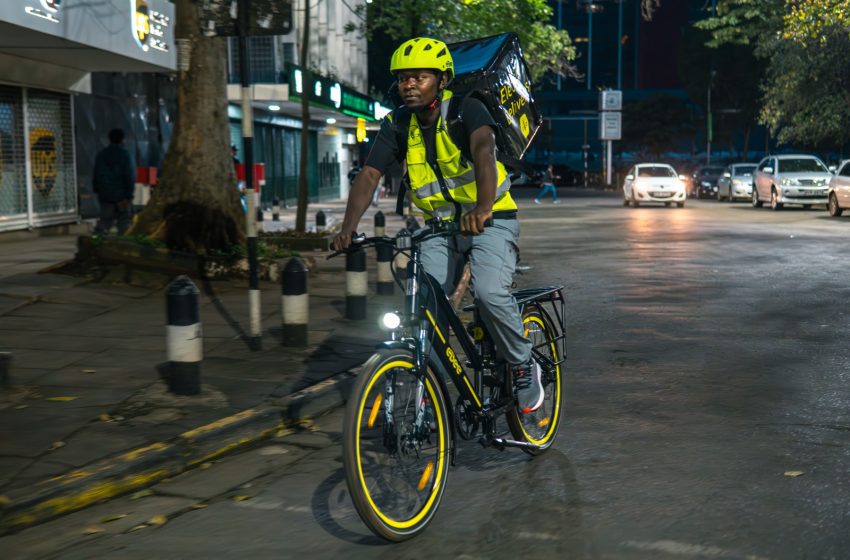
Pioneering Sustainable Transportation on Africa with Green Mobility
In major African cities, the hum of electric bicycles is becoming increasingly familiar, signaling a slow but steady shift towards sustainable urban mobility. This movement, is not just about reducing traffic congestion and pollution, it’s a transformative journey towards a greener and more inclusive future.
The narrative of green mobility in Africa is rich and multifaceted, supported by the urgent need and the desire to harness technology for social good.
Africa’s rapid urbanization comes with its set of challenges, including congestion, pollution, and a lack of efficient public transportation systems. Traditional vehicles,relying on fossil fuels, aggravate the environmental degradation, contributing significantly to the continent’s carbon footprint. The situation calls for innovative solutions that not only address these challenges but also align with the global push towards sustainability.
There are several innovations that have come to the fore to support the green mobility conversation. Several companies have invested in supporting this noble course. eBee Africa is one of them.
The company is at the forefront of the electric mobility revolution in Kenya, Uganda, and Rwanda. Founded with the mission to democratize e-mobility, eBee Africa introduced electric bicycles as a viable solution to the continent’s urban transport woes.
“Through affordability and ease of charging, our electric bicycles accelerate the adoption of e-mobility and democratize it across the continent,” says Sten Van Der Ham, CEO of eBee Africa.
The company is not just selling electric bicycles, it’s nurturing an ecosystem where sustainable transportation thrives. Focused on last-mile deliveries and daily commutes, eBee’s electric bicycles present an economical alternative to petrol and electric motorbikes, being 2.5-3 times more affordable to operate. The company’s strategic growth plans involve solidifying its presence in Kenya, Uganda, and Rwanda, with ambitions to venture into East and West Africa.
Technology and innovation lie at the heart of eBee Africa’s operations. The bicycles are designed for affordability, durability, and ease of repair, with most mechanical parts available locally.
“Our batteries, equipped with an integrated smart BMS, GPS, and connectivity, allow for efficient fleet management and easy charging,” Van Der Ham explains. This thoughtful design ensures that eBee’s electric bicycles are not only accessible but also adaptable to the varied and often rugged African terrain.
eBee Africa’s impact extends beyond environmental benefits, driving significant socio-economic change. By creating jobs, empowering women and youth, and offering income-generating opportunities through e-bicycles, eBee is weaving a new social fabric where mobility plays a central role in community development.
“50% of our mechanics are female, and we operate a fleet of delivery riders who were previously unemployed,” Van Der Ham proudly shares. This approach not only fosters inclusivity but also elevates the standard of living for many.
On the environmental front, eBee Africa is steadfast in its commitment to reducing urban carbon emissions. The company meticulously measures the ‘green kilometers’ covered by its e-bicycles, aiming to replace petrol motorbike deliveries with eco-friendly alternatives. With a goal to deploy 1 million e-bicycles across Africa, eBee envisages a future where urban centers are free from pollution and congestion, reducing carbon emissions by an estimated 6.5 million tons.
The journey towards green mobility in Africa is fraught with challenges, from infrastructural deficits to regulatory hurdles. However, the opportunities far outweigh these obstacles. As African cities continue to grow, the demand for sustainable, efficient, and affordable transportation solutions will only increase. Companies like eBee Africa are not just filling this gap; they are setting a new standard for what urban mobility can look like in the 21st century.
Collaboration with local governments, advocacy groups, and communities is key to fostering a cycling culture and developing the necessary infrastructure to support electric bicycles. Initiatives like those undertaken by eBee Africa, in partnership with groups like Mama Cycling and Critical Mass in Kenya, are vital in advocating for better cycling lanes and policies that support green mobility.
The green mobility revolution in Africa, is more than a mere transition to electric vehicles. It’s a comprehensive reimagining of urban transportation, geared towards environmental sustainability, economic empowerment, and social inclusivity. As this movement gains momentum, it promises to redefine the continent’s urban landscapes, making them more livable, breathable, and equitable for all. In embracing green mobility, Africa is not just catching up with the global trend; it’s leading the way towards a brighter, greener future.


![Phishing and scams have increased in Africa. [Photo - Courtesy]](https://techtalk.africa/wp-content/uploads/2022/08/Phishing.jpg)
![Kaspersky researchers have found a new malicious campaign that developers need to be ware of. [Photo - Courtesy]](https://techtalk.africa/wp-content/uploads/2022/08/Kaspersky.jpg)
![LightWays is a fully enclosed, flexible ducting system ideal for protecting, segregating and managing fibre optic cables in the data centre environment. [Photo - Courtesy]](https://techtalk.africa/wp-content/uploads/2022/08/Siemon_LightWays.jpg)



